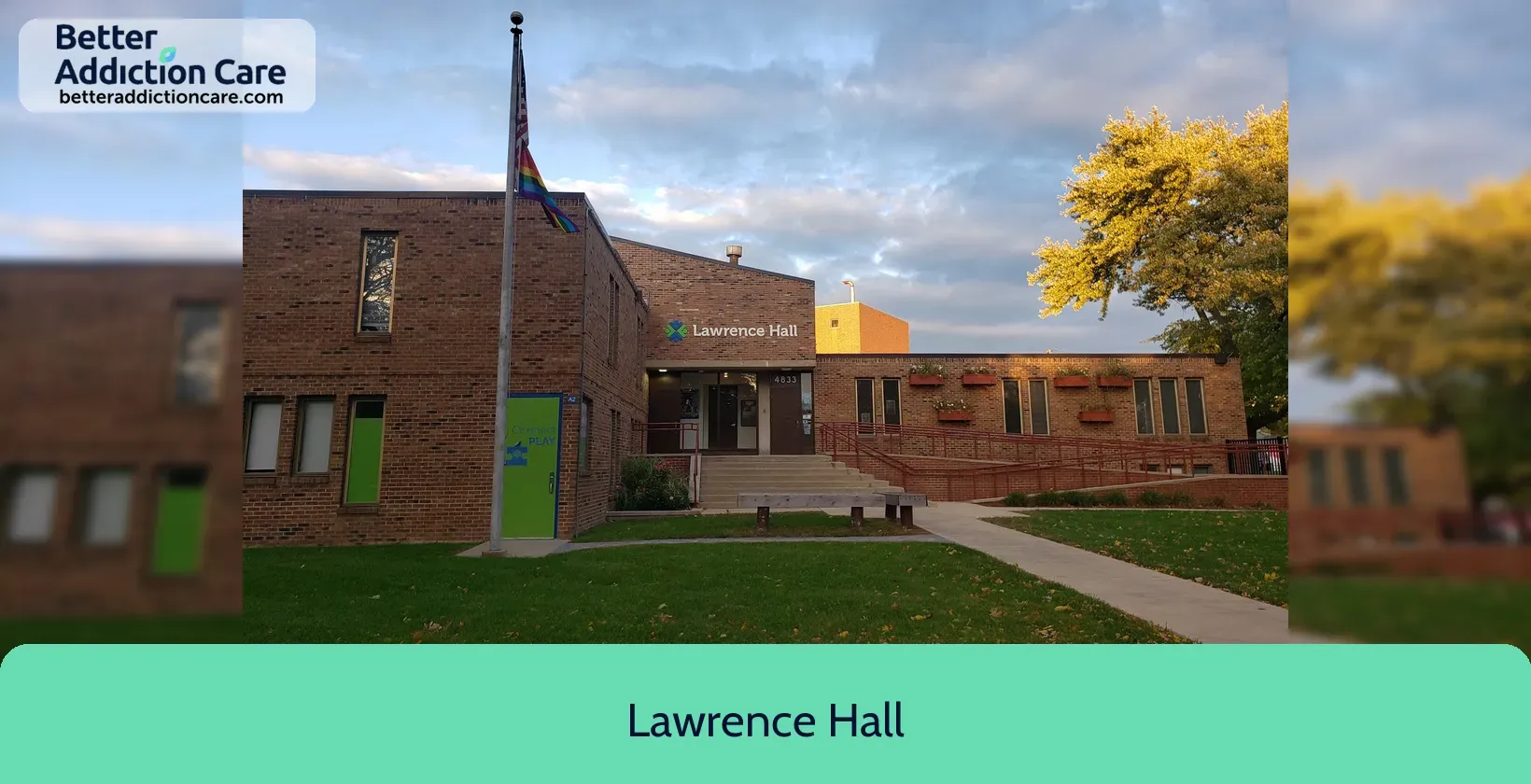Overview
Lawrence Hall is a mental health treatment center for people seeking treatment near Cook County. As part of their treatment modalities for recovery, Lawrence Hall provides couples/family therapy, group counseling, and cognitive behavioral therapy during treatment. Lawrence Hall is located in Chicago, Illinois, accepting medicaid for treatment.
Lawrence Hall at a Glance
Payment Options
- Medicaid
- State-financed health insurance plan other than Medicaid
- Private health insurance
- State mental health agency (or equivalent) funds
- State welfare or child and family services funds
Assessments
- Comprehensive mental health assessment
Age Groups
- Children/adolescents
Ancillary Services
- Intensive case management
- Case management service
- Diet and exercise counseling
- Education services
- Family psychoeducation
Highlights About Lawrence Hall
6.65/10
With an overall rating of 6.65/10, this facility has following balanced range of services. Alcohol Rehabilitation: 8.00/10, Drug Rehab and Detox: 6.00/10, Insurance and Payments: 6.00/10, Treatment Options: 6.61/10.-
Alcohol Rehabilitation 8.00
-
Treatment Options 6.61
-
Drug Rehab and Detox 6.00
-
Insurance and Payments 6.00
Accreditations
Federally Qualified Health Center:
Federally Qualified Health Center (FQHC) accreditation is a process of evaluation and recognition by the federal government for community health centers that provide comprehensive and accessible healthcare services to underserved populations. FQHC accreditation is essential for centers to receive federal funding and to ensure that they meet standards for quality, patient-centered care.
Treatment At Lawrence Hall
Treatment Conditions
- Mental health treatment
Care Levels
- Hospital inpatient treatment
Treatment Modalities
- Couples/family therapy
- Group counseling
- Cognitive behavioral therapy
- Dialectical behavior therapy
- Activity therapy
Ancillary Services
Special Programs
- Clients with co-occurring mental and substance use disorders
- Children/adolescents with serious emotional disturbance (SED)
- Persons 18 and older with serious mental illness (SMI)
Common Questions About Lawrence Hall
Contact Information
Read our Most Recent Article About Drug Addiction
DISCLAIMER: The facility name, logo and brand are the property and registered trademarks of Lawrence Hall, and are being used for identification and informational purposes only. Use of these names, logos and brands shall not imply endorsement. BetterAddictionCare.com is not affiliated with or sponsored by Lawrence Hall.









